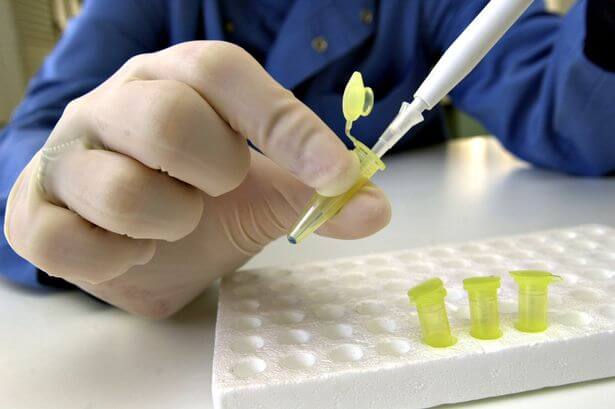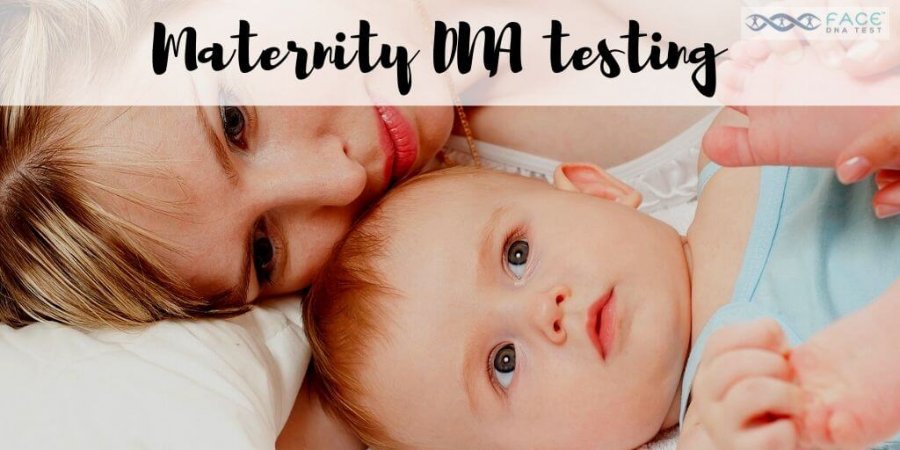Maternity Testing is preferred to get the conformity of a biological mother. Here, the DNA profile of a baby is matched with the mother and then analyzed in a lab. This test also can be done during pregnancy but should be done as early as seven weeks of pregnancy.
Where Maternity DNA testing in Fort Worth is required:
- Immigration: Maternity DNA testing is required if you are sponsoring your mother in the USA for citizenship and also in case of a request by US immigration authorities to prove maternity. AABB accredited face DNA test lab can help you with immigration purposes.
- Surrogacy: In traditional surrogacy, there is no need for maternity DNA testing but in the case of gestational surrogacy, we can depend on maternity testing to ensure that the intended mother is the actual biological mother.
- Hospital baby switches case: In cases such as where a baby mixes up with another baby in a hospital, maternity testing can resolve this issue.
- International adoption: Here, if a woman is willing to put her baby in adoption then maternity DNA testing can confirm whether she is a biological mother or not. It can also avoid any corruption or trafficking.
Facednatest experts can help you in maternity testing and you also can get a home kit for your comfort. This renowned DNA testing company in the USA can also help you with other services like Paternity testing, immigration, Prenatal testing, Forensics, etc.
What is a maternity test?
Maternity tests are genetic tests used to identify if a woman is a child’s biological mother. It determines the likelihood of pregnancy by comparing particular DNA markers between the kid and the purported mother. Like paternity tests, maternity testing has an accuracy of 99%. They need to take cheek swab specimens from the mother who was tested as well as the kid.
In addition to verifying biological ties, there are other reasons to request a maternity test, such as resolving inheritance disputes and gaining citizenship rights. Putting an end to doubts about parenthood is quick, discreet, and reasonably priced thanks to advances like DNA testing.
How can you use DNA profiling to determine maternity and paternity?
DNA profiling also known as DNA mapping is the process of analyzing distinct genetic markers known as short tandem repeats. Children have unique profiles since they inherited STR sequences from both parents. The likelihood of biological ties is calculated by comparing the profiles of the kid and the purported parents.
Paternity tests look at autosomal short tandem repeats that are found in both genders and Y-chromosome STRs that are exclusively found in males. Advanced maternity tests concentrate on extremely variable autosomal STRs since women are not involved in Y-chromosome DNA. Maternity may be determined with more than 99% accuracy by testing 16 autosomal locations.
Modern techniques examine millions of DNA locations and offer conclusive proof of relationships even in cases when the fathers of the accused are not accessible for comparison. New methods such as whole DNA sequencing uncover the whole genetic connections between a kid and their biological mother.
How to get a free DNA test while pregnant?
State programs may provide prenatal pregnancy DNA maternity testing to Medicaid-eligible or underprivileged women. Subsidized “prenatal DNA tests” with income-based costs are available at some Planned Parenthood health facilities. Prenatal genetic testing can also be financially aided by some organizations.
Discounted maternity DNA test kits are among the promotional incentives that several at-home paternity test providers, such as Face DNA Technology, extend to pregnant moms. Discovering reasonably priced testing choices by just Googling for maternity test near me guarantees that budgetary constraints won’t prevent pregnancies from being conceived.
How long does a DNA test take after birth?
Neonatal or otherwise known as newborn DNA test processing times vary depending on the laboratory and technique used. Results from the majority of reliable PCR services are obtained in two to three days from the laboratory after samples are received. While more thorough connection tests need three to five days to complete, rapid genetic testing can yield answers in a matter of hours.
There are no more difficulties when testing babies than with adults. All that is needed to get baby DNA samples are soft cheek swabs. There are no waiting periods till a specific age. Testing suspected dads concurrently, as opposed to testing the mother and kid alone, yields more convincing connection evidence.
How fast is DNA maternity testing?
The most recent DNA testing methods enable remarkably quick findings from sample collection for maternity testing. Simple pregnancy tests need one to two days to complete. Due to simplified PCR analysis on computerized devices and effective gene extraction techniques, the testing procedure itself only takes about four to six hours.
With the correct samples, several laboratories using rapid DNA tools may complete maternity tests in less than 90 minutes. With this expedited approach, conclusive answers are obtained in hours rather than days, allowing new moms to promptly resolve any questions over the paternity of their child.
With a constantly declining cost, developing DNA sequencing technology offers to expedite sophisticated connection testing to 24 hours or less.
Choose Clarity with Our DNA Test.
Get Accurate Answers With our Test!.
-
- Accurate
- Quick Result
- Private and Secure
- Affordable

Conclusion
Maternity vs. paternity determination is accurate, confidential, and affordable with cutting-edge rapid DNA testing from experts like Face DNA Test. A precise, court-admissible DNA test may be ordered online by any expecting parent, and results can be obtained nearly as fast as those of a pregnancy test. The question of forming biological ties is no longer relevant. A quick cheek swab permanently resolves maternity-related queries.




Leave a Reply
Your email is safe with us.
You must be logged in to post a comment.